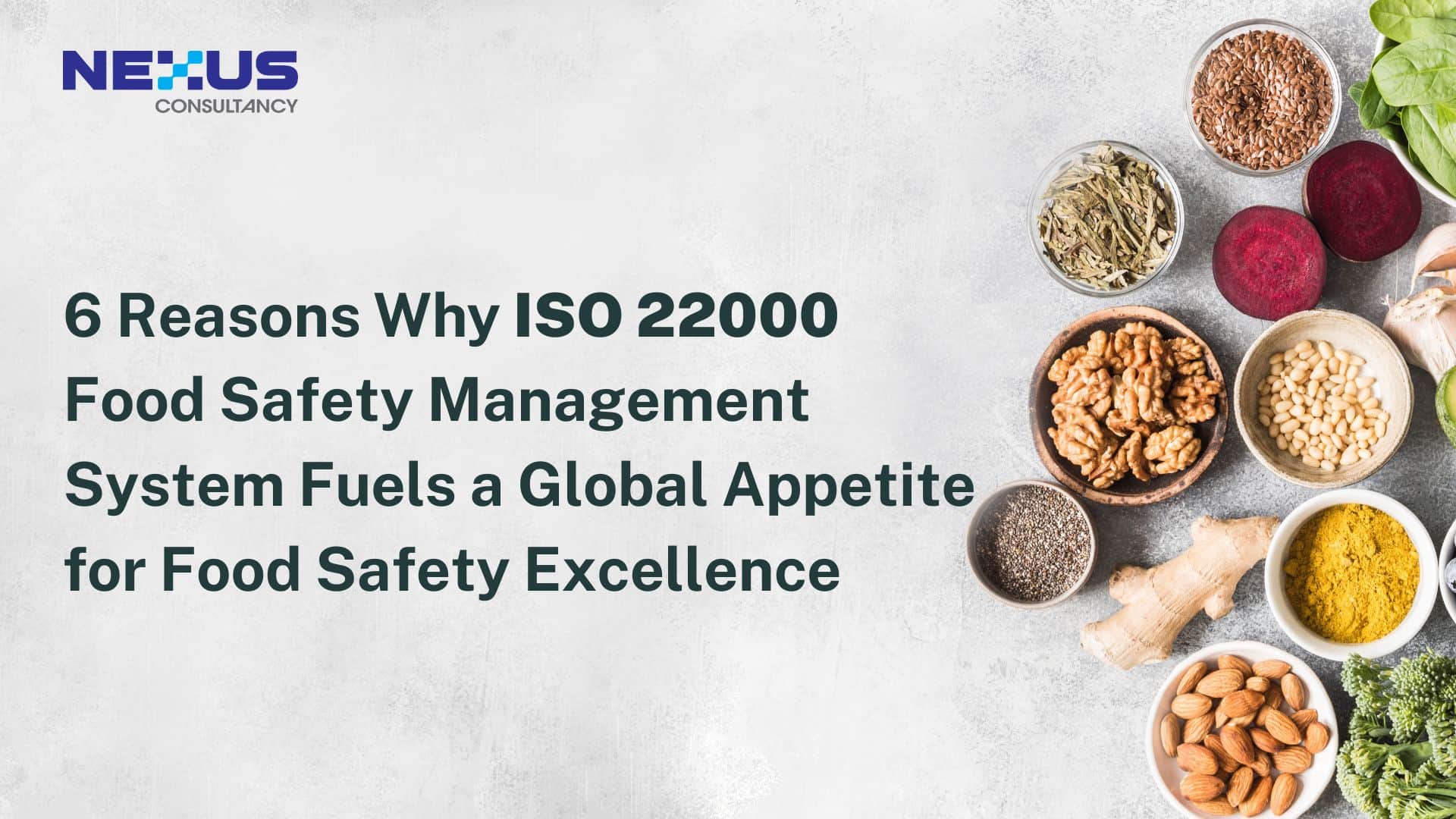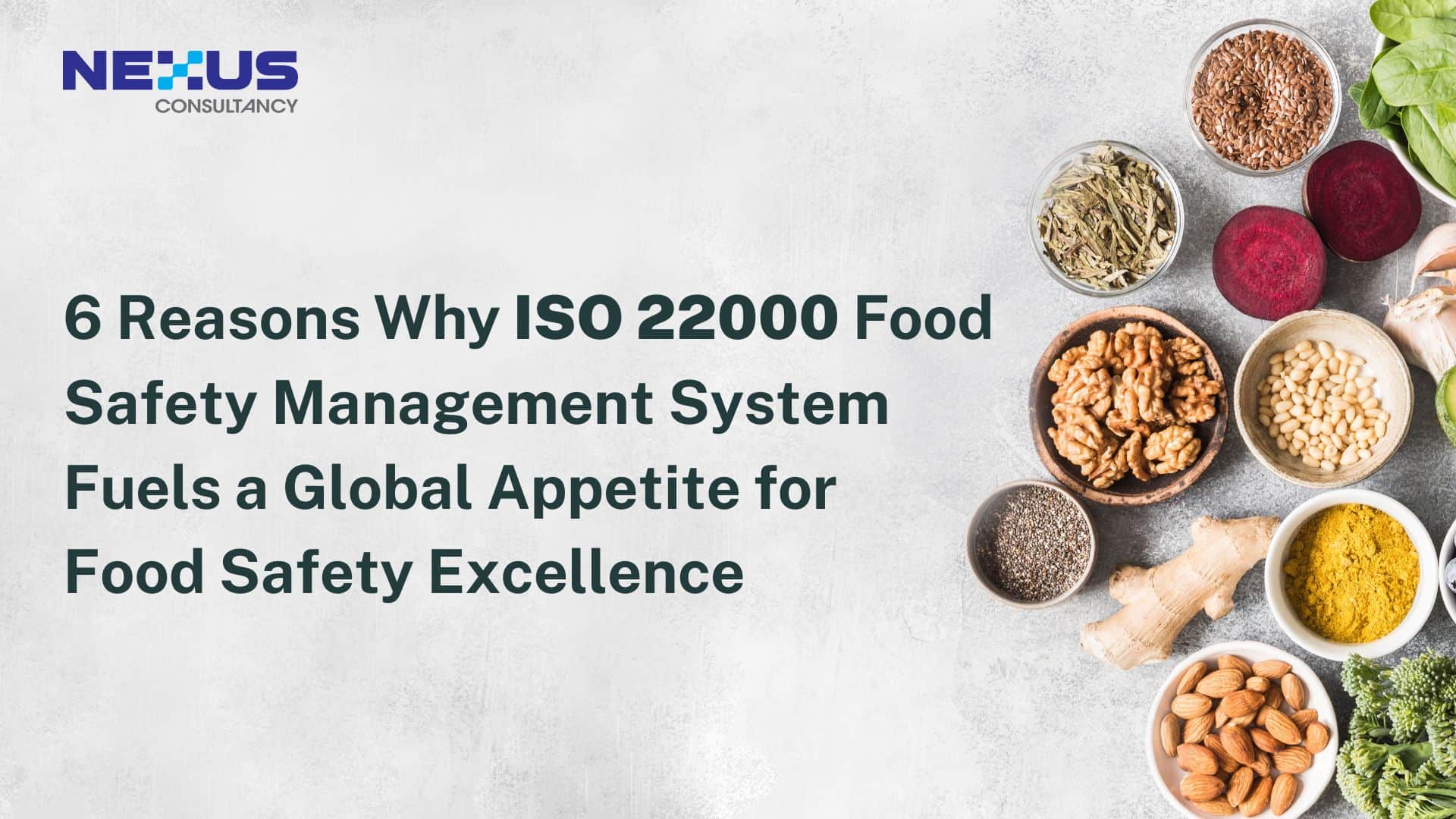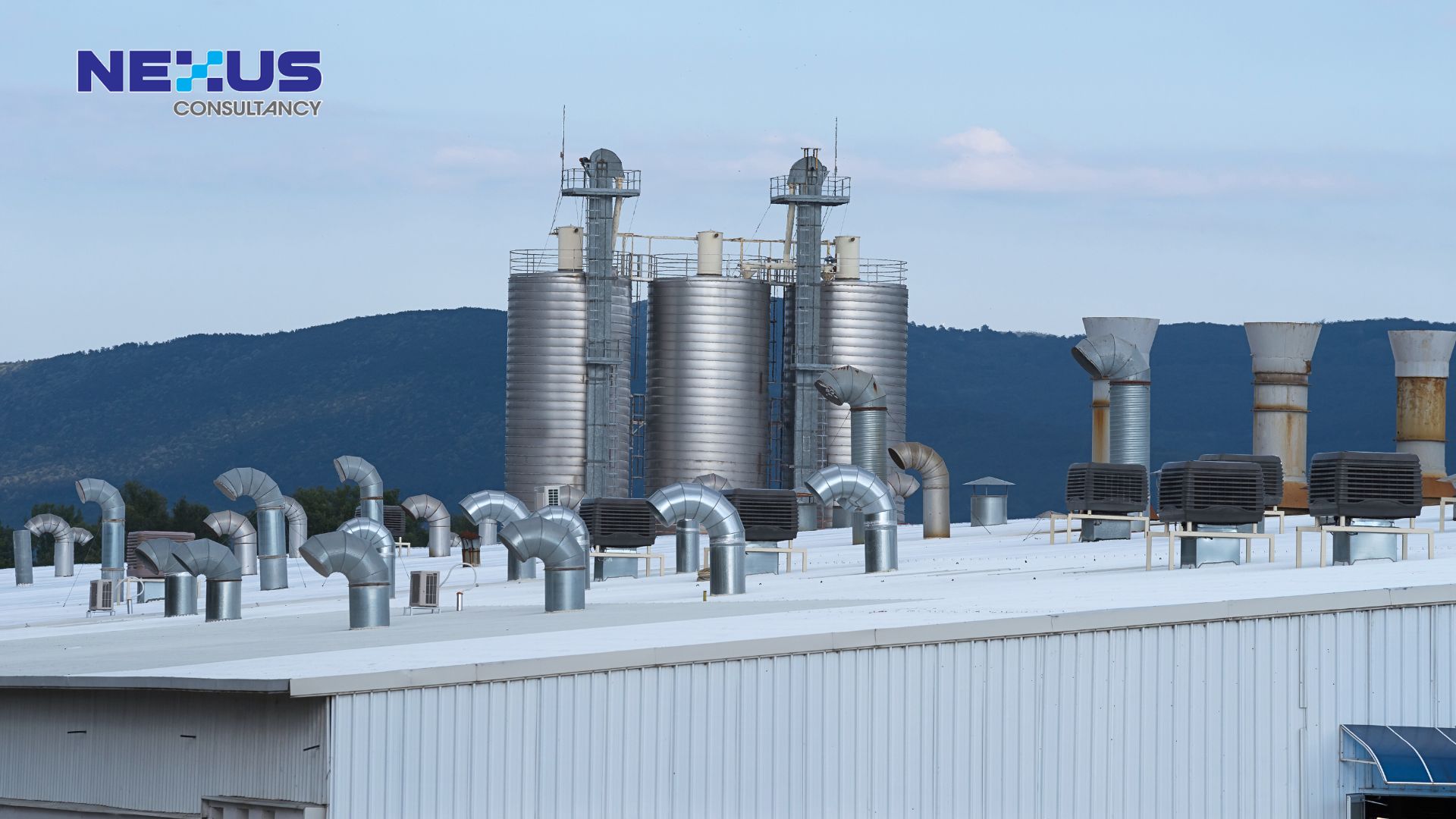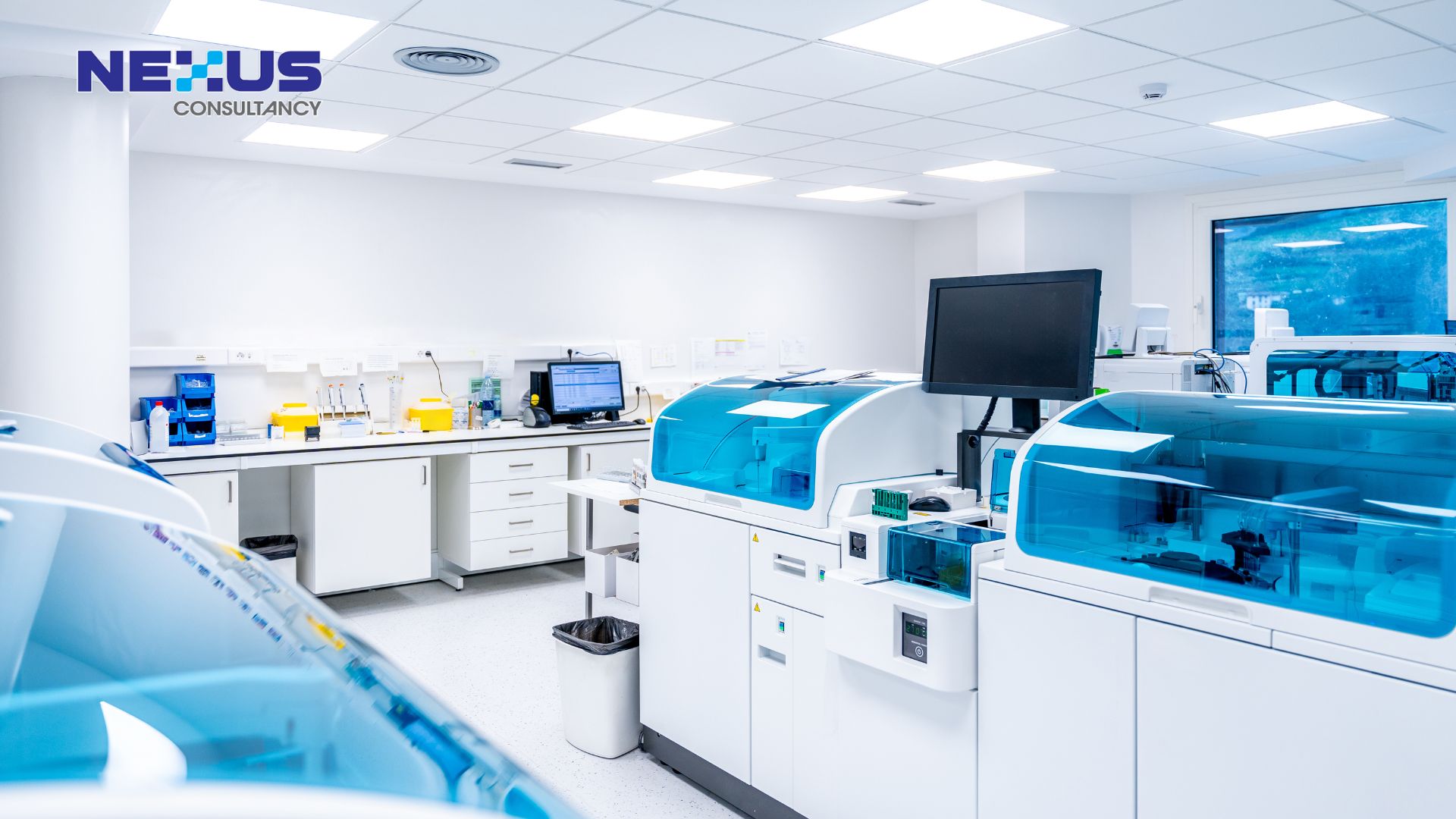
Cynthia Wong
Management Consultant
Explore the six compelling reasons why ISO 22000 Food Safety Management System is fueling a global appetite for food safety excellence. From ensuring consumer trust and regulatory compliance to enhancing brand reputation and expanding market reach, discover how ISO 22000 can help your business achieve the highest standards of food safety.

In today’s interconnected world, food safety is a paramount concern for consumers, businesses, and regulatory authorities. To address the increasing need for a standardized and comprehensive approach to food safety management, ISO 22000 has emerged as a global demand. This internationally recognized standard provides a framework for organizations to establish and maintain robust Food Safety Management Systems (FSMS). In this article, we will delve into the six compelling reasons why ISO 22000 has become a global demand, and we will uncover the significant benefits it brings to businesses and consumers alike.
#1. Consistency and Harmonization
ISO 22000 offers a globally recognized and consistent approach to food safety management. Its implementation ensures a harmonized set of requirements and guidelines that transcend national boundaries. With ISO 22000, businesses can adhere to a unified framework, regardless of their geographic location or market they operate in. This consistency promotes global best practices, streamlines international trade, and enhances consumer confidence in the safety of food products.

#2. Comprehensive Risk-Based Approach
ISO 22000 employs a risk-based approach to food safety management, enabling organizations to identify, assess, and control potential hazards at every stage of the food supply chain. This approach ensures a systematic and proactive handling of risks, preventing foodborne illnesses and other safety incidents. By addressing both known and emerging risks, ISO 22000 provides organizations with the flexibility to adapt and stay ahead of evolving food safety challenges.
#3. Integration and Compatibility
ISO 22000 is designed to be compatible and easily integrated with other management system standards, such as ISO 9001 (Quality Management) and ISO 14001 (Environmental Management). This compatibility enables organizations to streamline their management processes, achieve operational efficiencies, and minimize duplication of efforts. By integrating ISO 22000 with other management systems, organizations can establish an all-encompassing framework that addresses quality, environmental, and food safety concerns simultaneously.

#4. Legal and Regulatory Compliance
ISO 14001 fosters meaningful engagement with stakeholders, including employees, customers, investors, and local communities. By involving stakeholders in environmental management practices, businesses can gain valuable insights, build trust, and enhance their relationships.
Employees are more likely to feel motivated and engaged when working for an environmentally responsible organization. ISO 14001 provides a platform for involving employees in environmental initiatives, fostering a sense of ownership and pride. Customers and investors, too, are increasingly prioritizing companies with robust environmental management systems, perceiving them as more trustworthy and socially responsible.
ISO 22000 helps organizations fulfil legal and regulatory requirements related to food safety. By implementing the standard’s requirements, businesses can demonstrate compliance with international and national regulations, reducing the risk of non-compliance penalties and legal issues. ISO 22000 provides a solid foundation for meeting regulatory expectations and facilitates successful audits and inspections by regulatory authorities.
#5. Consumer Confidence and Competitive Advantage
In an era where consumers are increasingly concerned about the safety and quality of the food they consume, ISO 22000 certification serves as a powerful tool to build trust and instil confidence. The certification showcases an organization’s commitment to maintaining the highest standards of food safety, giving consumers assurance that the products they purchase have undergone rigorous safety measures. ISO 22000 certification also provides a competitive advantage, differentiating certified businesses from their competitors and opening doors to new market opportunities.
#6. Continuous Improvement and Performance Enhancement
ISO 22000 places a strong emphasis on continuous improvement and performance enhancement. By implementing the standard, organizations are encouraged to monitor, measure, and analyse their food safety performance regularly. This drives a culture of continuous learning and improvement, enabling businesses to identify areas for enhancement, implement corrective actions, and stay ahead of emerging food safety risks. ISO 22000’s focus on continual improvement fosters innovation and drives organizations to strive for excellence in food safety management.
Conclusion
ISO 22000’s global demand stems from its ability to provide a standardized, comprehensive, and risk-based approach to food safety management. By embracing ISO 22000, organizations can demonstrate their commitment to protecting consumers, meeting regulatory requirements, and achieving operational excellence. With its compatibility, integration potential, and focus on continuous improvement, ISO 22000 helps organizations address global food safety challenges effectively and ensures the highest standards of safety throughout the food supply chain.
To learn more about food safety culture, contact us to know more









